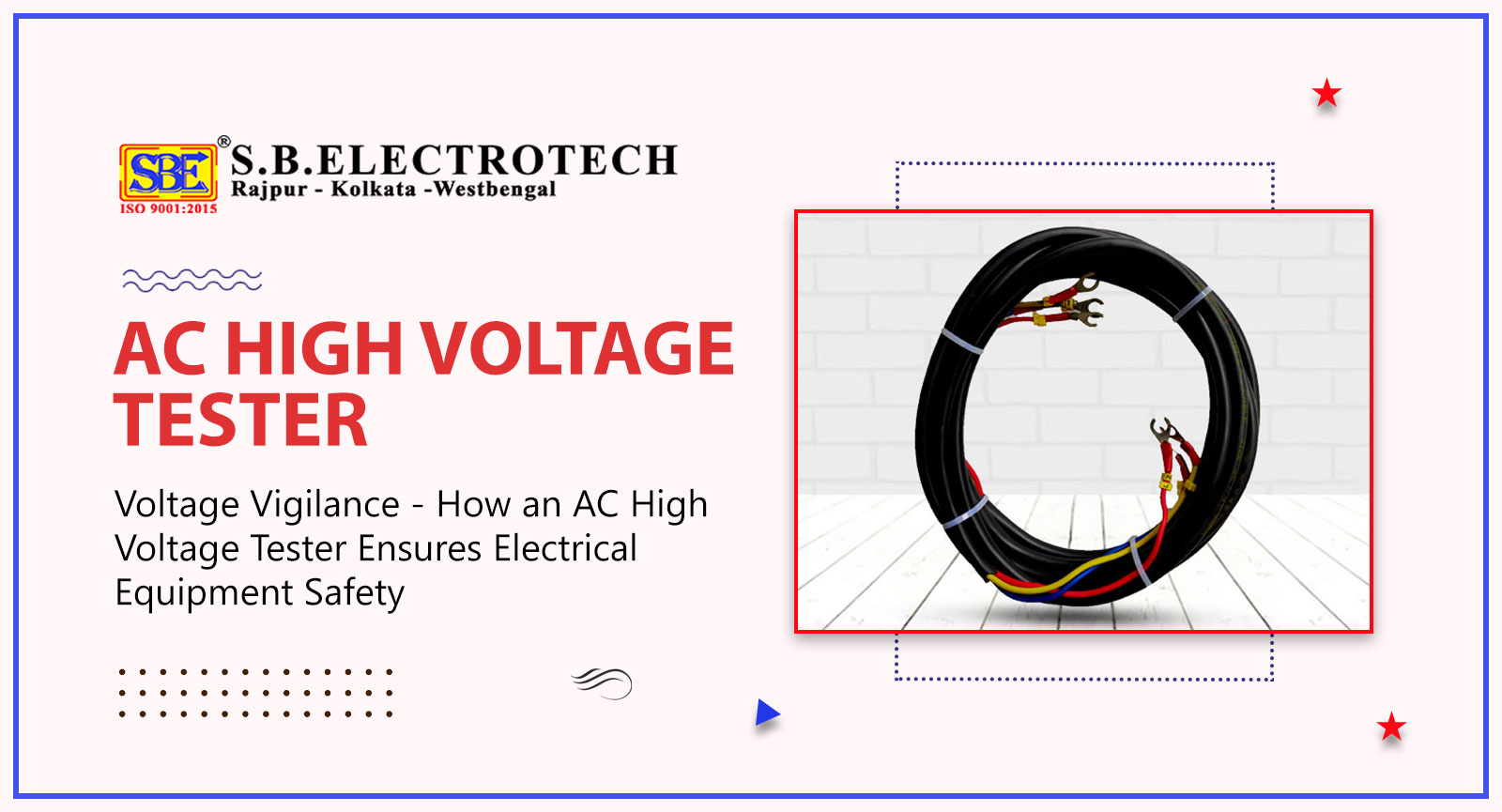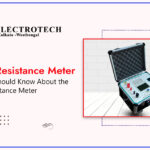Electrical safety is of paramount importance in various industries, from power generation and distribution to manufacturing and construction. To ensure the safe operation of electrical equipment, thorough testing and inspection are essential. One crucial tool in this process is an AC High Voltage Tester.
The Importance of Electrical Equipment Safety
Electrical equipment is prone to various hazards, including electric shock, fire, and damage to property. These risks can have severe consequences, leading to injuries, fatalities, and significant financial losses. It is crucial to ensure that electrical equipment is properly designed, installed, and maintained to mitigate these risks and safeguard both personnel and property.
The Role of an AC Voltage Tester
An AC voltage tester offered by AC High Voltage Tester Manufacturers in India is a specialized testing instrument designed to assess the insulation integrity and performance of electrical equipment. It is primarily used to verify the ability of insulation materials and systems to withstand high voltage stress without breakdown or failure. By subjecting electrical equipment to high voltage testing, the tester detects potential weaknesses, faulty insulation, and inadequate clearance distances, ensuring the equipment’s safety and compliance with standards.
Key Features and Functionalities of an AC High Voltage Tester
- Voltage Generation:An AC tester is capable of generating high voltages, typically ranging from a few kilovolts to several megavolts. The voltage can be adjusted to simulate different operating conditions and stress levels.
- Voltage Measurement:The tester includes accurate voltage measurement capabilities to monitor and record the voltage applied to the equipment under test. This allows for precise assessment of insulation performance and identification of any voltage abnormalities.
- Insulation Resistance Testing: Insulation resistance is a critical parameter in determining the quality of insulation materials. An AC tester measures the insulation resistance of the equipment, indicating the effectiveness of the insulation in preventing leakage current and ensuring electrical safety.
- Dielectric Strength Testing: Dielectric strength refers to the maximum voltage that an insulation material can withstand before breaking down. The high voltage tester assesses the dielectric strength of the equipment’s insulation, ensuring it can withstand the specified voltage levels without failure.
- Leakage Current Measurement:Leakage current is the current that flows through unintended paths in electrical equipment. An AC voltage tester measures and analyzes leakage current, identifying any abnormal or excessive current flow that could indicate insulation degradation or potential hazards.
- Ground Bond Testing: Ground bond testing ensures the integrity of the electrical grounding system of the equipment. The tester verifies the continuity and resistance of the grounding connections, reducing the risk of electrical shock and providing a reliable path for fault current.
Preventing Electrical Hazards with an AC High Voltage Tester
- Identifying Insulation Weaknesses:High voltage testing helps identify insulation weaknesses, such as cracks, voids, or contaminants, that may compromise the safety and reliability of electrical equipment. By detecting these weaknesses early, appropriate measures can be taken to prevent potential failures and hazards.
- Ensuring Compliance with Standards:An AC voltage tester is an essential tool for verifying compliance with industry standards and regulations. By subjecting equipment to standardized high voltage tests, organizations can demonstrate that their equipment meets the required safety standards.
- Pre-Commissioning and Routine Testing:High voltage testing is performed during the pre-commissioning stage of electrical equipment to ensure its initial integrity. Additionally, regular routine testing using the high voltage tester helps identify any insulation degradation over time, enabling timely maintenance and repairs to prevent accidents and equipment failures.
- Quality Assurance: Manufacturers utilize AC testers to perform quality control tests on electrical equipment during the production process. These tests ensure that the equipment meets the specified safety standards and functions reliably in real-world operating conditions. By incorporating high voltage testing as part of their quality assurance process, manufacturers can deliver safe and reliable electrical equipment to the market.
Conclusion:
Capacitance & Tan Delta Test Kit plays a vital role in ensuring electrical safety and reliability. Its ability to generate high voltages, measure insulation resistance, test dielectric strength, and monitor leakage current enables accurate assessments of electrical equipment.
When it comes to reliable testing equipment, trust S.B. Electrotech, a reputable AC High Voltage Tester Suppliers in India that prioritize safety and performance. With their expertise and commitment to excellence, S.B. Electrotech ensures that electrical systems meet the necessary safety standards and operate reliably in various industries and applications.

S.B.ELECTROTECH
S.B. Electrotech is a company that specializes in manufacturing of electrical and electronic testing and measuring instruments. With years of expertise in this field, we ensure to provide high quality, safe, and sustainable products.




